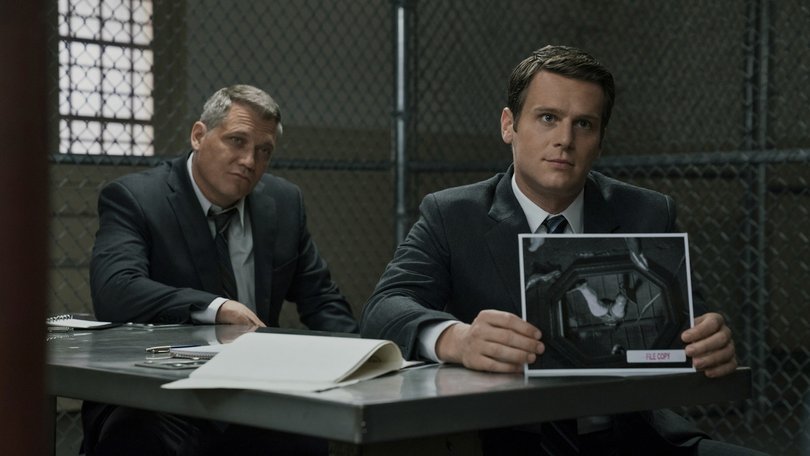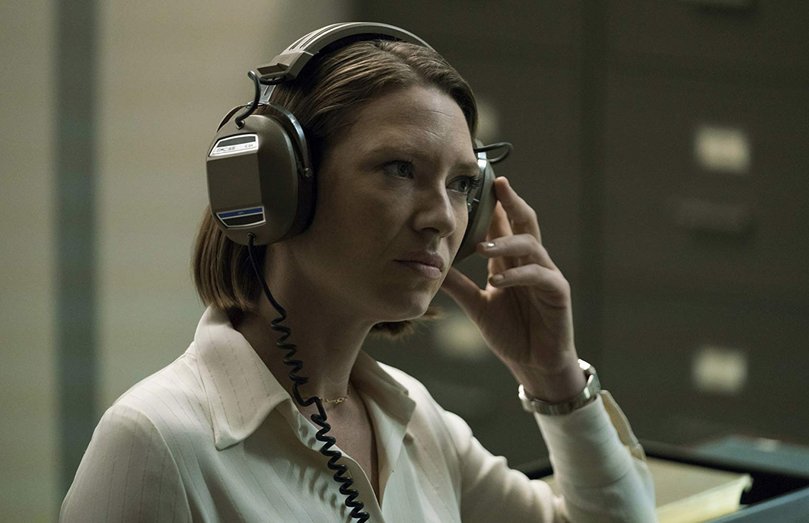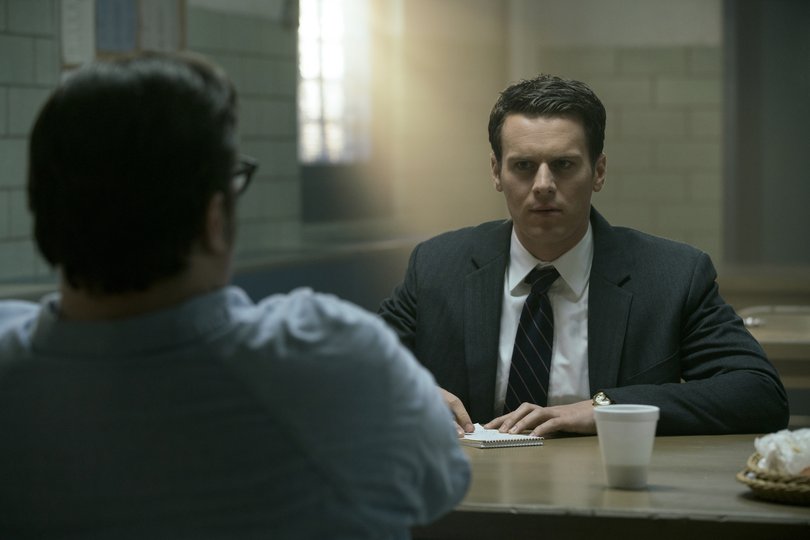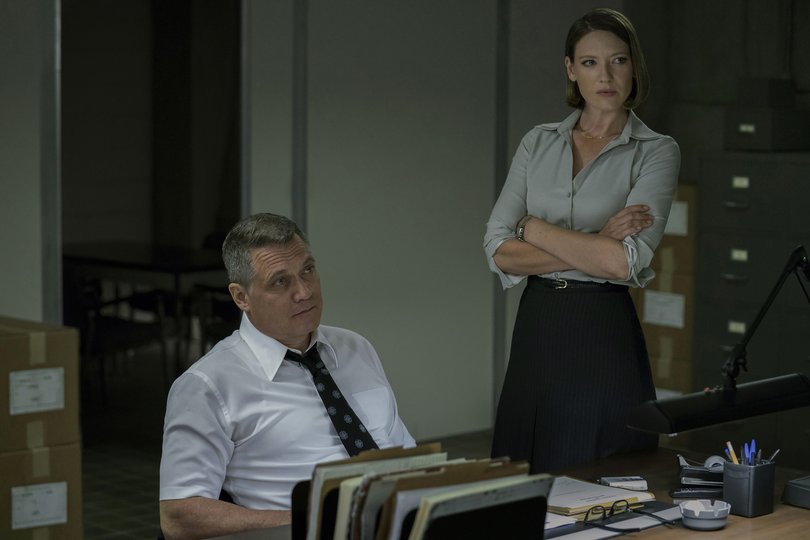Hallelujah! Mindhunter might be coming back as a trilogy of movies
It was part of an earlier era of Netflix when the streamer emphasised high quality titles over volume and disposability. It might be coming back as a trilogy of movies.

One of the great injustices in TV shows cancelled too soon was the Netflix crime drama Mindhunter.
The series was created by Joe Penhall and was drawn from real-life experiences of early FBI criminal profilers. Widely considered one of the best shows Netflix has ever made, it ran for two seasons in 2017 and 2019.
At the start, its greatest drawcard was that David Fincher was deeply involved, essentially showrunning the production, and was the set-up director and also helmed the season one finale episodes as well as the season two openers.
Sign up to The Nightly's newsletters.
Get the first look at the digital newspaper, curated daily stories and breaking headlines delivered to your inbox.
By continuing you agree to our Terms and Privacy Policy.Fincher is an exacting filmmaker and the darkness and dread of his tone and style came through strong in the show which starred Jonathan Groff, Anna Torv and Holt McCallany.
The three played colleagues in a nascent behavourial sciences unit in the basement of the FBI who studied serial killers in order to better understand and catch active predators. Among the notorious crims Mindhunter dramatised were Edmund Kemper, Charles Manson, Son of Sam and William Pierce Jr.

When the second season wrapped, there was still the potential for another instalment although it had been put on hold. Certainly the story was set up to explore the BTK killer, a serial murderer that stalked Kansas between 1974 and 1991.
But by the start of 2020, the actors had been released from their contracts and Mindhunter looked like it was done. Fincher was busy on other projects and he also said that the series never attracted the high number of audiences to justify how expensive it was to make.
Fans were devastated but eventually moved on. But there was always the dream, that maybe, someday, it could come back.
McCallany has just given audiences that hope. In an interview with CBR, he revealed “I had a meeting with David Fincher in his office a few months ago, and he said to me that there is a chance that it may come back as three two-hour movies, but I think it’s just a chance.
“I know there are writers that are working, but you know, David has to be happy with the scripts.
“I felt very fortunate and privileged to have gotten to do that show at all. I would love it it were to return. I think, like I said, you know, he gave me a little bit of hope when I had that meeting with him, but the sun, the moon and the stars would all have to align.”
So, it’s just a chance, and a gazillion things happen behind the scenes that makes a project fall over, but just imagine if it actually happened.

Fincher has long been regarded as one of the most prominent filmmakers of his generation, having made the likes of Seven, Zodiac, Fight Club and The Social Network. But for the past decade, he has been firmly embedded within the Netflix system.
For Netflix, he was one of the hands behind the US adaptation of House of Cards, the platform’s signature piece when it launched its originals slate, and also made movies Mank and The Killer, and directed episodes of Love, Death & Robots, and was an executive producer on docuseries Voir. He’s also reportedly prepping an English-language version of Squid Game.
The last thing he made outside of the streamer was Gone Girl in 2014, so he certainly has the relationship to get Mindhunter up and again.
Mindhunter was a series that personified the earlier era of Netflix when the streamer’s creative ambitions led it to commission a raft of auteur-driven, high quality titles, compared to the current strategy of high volume, disposable and forgettable.
With Fincher’s overall hand, there was quality control over each aspect of the production. When changes had to be made – as it happened with season two when all the scripts had to be rewritten – it was done.
That gave the series a consistency across its 19 episodes, with rarely a dull or wasted moment.
It wasn’t just that Mindhunter was a chilling exploration of sociopathy and criminal compulsion, it was also a thoughtful examination of its characters and the effect of their work on their lives.

Woven between their professional challenges were their personal ones, and the balance was always on point, and inextricable.
Torv’s character, Wendy, was a psychology professor whose academic work found her working with their unit. She was always something of an outsider, which was reflected in her lonely personal experience, and a closeted lesbian at a time when such things were highly not OK in law enforcement.
Holden (Groff) might have started off as the prodigious young agent but he took increasing risks in his work, while Tench (McCallany) seemed like, at first, more of an “old school” agent but he always had a way of surprising you.
Rare is the crime drama that is so character-driven while always maintaining the momentum of the story – and it did it without overt shocks or spectacle. This was disciplined, considered filmmaking.
Contrast Mindhunter, then, with Netflix’s more recent crime offerings, always trying to dial up the melodrama to satiate a true crime-fuelled appetite. Monsters: The Lyle and Erik Menendez Story was about overwhelming audiences into submission - more blood, more titillation, more pageantry. Groan.
Here’s really hoping that Mindhunter does come back, and show them how it’s really done.

